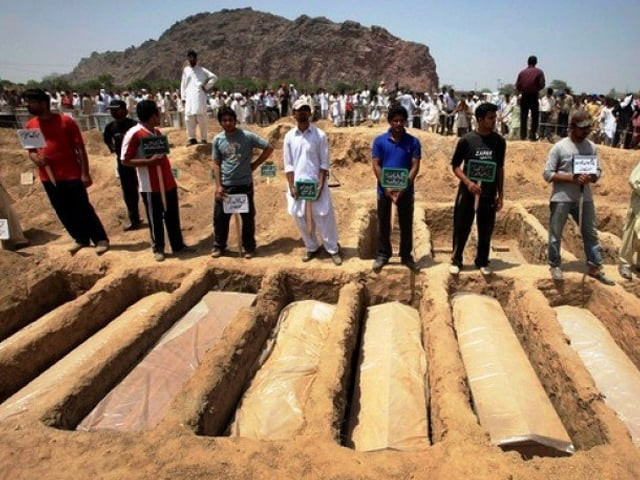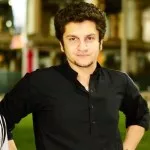“I have not seen such overt discrimination ever in my life,” he said.
A few days before the distressed phone call, he and I had an interesting conversation regarding basic human rights when my column on pluralistic ramifications of Sufism and its association to the land of the subcontinent was published in a local newspaper in the US.
He appreciated that I had tried to highlight the mystic culture of Pakistan, and the liberal and humanistic tangents that embody it. He said he was glad to hear that the Pakistani Muslim youth of today was showing an interest in the subject.
In sharp contrast to the laudatory phrases that he had used for Pakistan earlier, the phone call featured agitation and disappointment because of an application sent to him by a well-reputed university in Pakistan for a faculty position.
He is a member of an external committee that reviews applications for the candidates who apply for faculty positions in universities in Pakistan. He showed me the excerpt of the oath which every individual has to take when he or she applies for a faculty position in a renowned public university in Pakistan.
The oath requires you to vow that you are not a member of the Ahmadi community.
“I don’t know what to talk to you about or what to say to you,” he said, disgruntled with the content of application.
He hoped I would raise my voice against these discriminatory practices and speak for the rights of the marginalised communities in my country.
“A university is a secular institute where an individual’s ability to contribute to academics and research is gauged through his knowledge and academic excellence not through his religion, caste or creed,” he said, exasperatedly.
He asked me how he should respond to this blatant discrimination, and we decided to write a response to the registrar of that university.
Here is an excerpt from that letter. Certain details have been blurred to ensure privacy.

This is the clause that professors are asked to attest to:
1. I am a Muslim and believe in the absolute and unqualified finality of the Prophethood of Muhammad (PBUH), the last of the Prophets.
2. I do not recognise any person who claims to be a prophet in any sense of the word or of any description whatsoever after Muhammad (PBUH) or recognise such a claimant as prophet or a religious reformer as a Muslim.
3. I consider Mirza Ghulam Ahmad Qadiani to be an imposter Nabi and also consider his followers whether belonging to the Lahori or Qadiani group to be non-Muslim.
I felt shame wash over me as my professor expressed his disdain. My Pakistan was indulging in practices I couldn’t possibly be proud of.
I had to set the record straight. This is not what Pakistan stands for. The extremist voices that are taking over Pakistan’s narrative need to be addressed and extinguished.
I assured my professor that I agree with him wholeheartedly.
I assured him that I will be standing by his side against the inclusion of these discriminatory clauses in the oath for the faculty positions.
It was very hard for me to tell him that the reality is far graver than this.
Members of the Ahmadi community face discrimination on a much grander scale. An Ahmadi can be jailed for three years for merely saying Salam (Islamic greeting) to other Muslims or doing anything that can give an impression that he is posing as a Muslim.
This whole incident reminded me of the time when I went to the passport office before coming to the US and had to sign a similar oath declaring that I am a Muslim and do not belong to the Ahmadi community.
The oath had stung me.
The words had stayed in my consciousness for a long time, until I convinced myself that that’s just how things are and I must move on. However, this time, I cannot lie to myself. I cannot stand and watch a community of people be subjected to such great injustices.
I cannot imagine being dictated the definition of my religion and having my rights taken away on the basis of my faith.
I cannot imagine being told that I cannot perform Hajj, or get a passport without relinquishing my beliefs or say Salam to my fellow countrymen. I’m sure many of you feel the same way.
But think about this – there are those who do not need to imagine; it is their reality.
Let that sink in. I urge you to take a moment to truly understand what I’m saying, and then read on.
The essence of democracy is lost when we mix religion with politics.
The essence of justice is lost when the state decides that it has the right to dictate the identity of its people.
Certain extremist sections of society have kept the largely moderate majority from exhibiting its true harmonious colours. The truth is that many of us do not like how the state is treating the Ahmadi community, but we bite our tongues and say nothing because we have been trained to accept the status quo, because we feel that we have nothing to do with the suffering of our own people.
Many of us made use of the Facebook filter that was introduced to show solidarity with the victims of the Paris attacks. Pakistanis flooded their Twitter character spaces with #PrayForParis, #PrayForBeirut, #PrayForIraq and #PrayForPalestine. Why do we run out of space when it comes to showing solidarity with our own people?
We chastise others for practicing selective humanitarianism, but aren’t we guilty of it too?
Why do so many of us stay silent when it comes to showing support for our own brothers?
Many of you, after reading this article, will feel the stinging shame and guilt, that my words have stirred, overcome your senses. Many of you will then shun my words to the dark depths of your consciousness where justice goes to die. But there might be some, I hope, who will agonise over the truth of my words, who will linger on this page and think:
How can I end this criminal disregard of the Ahmadi community?
How can I fight for the rights of my countrymen?
Because of you, because of your ingenuity and because of your strong sense of justice, I have hope. The Ahmadi community has hope. And Pakistan has hope.



COMMENTS
Comments are moderated and generally will be posted if they are on-topic and not abusive.
For more information, please see our Comments FAQ